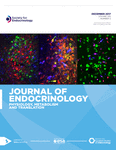PGC-1α, glucose metabolism and type 2 diabetes mellitus
- 1Department of Pathology, Hebei Medical University, Shijiazhuang, China
- 2Key Laboratory of Kidney Diseases of Hebei Province, Shijiazhuang, China
- 3Departments of Oncology & Immunotherapy, Hebei General Hospital, Shijiazhuang, China
- 4Mathew Mailing Centre for Translational Transplantation Studies, Lawson Health Research Institute, London Health Sciences Centre, London, Ontario, Canada
- 5Departments of Medicine and Pathology, University of Western Ontario, London, Ontario, Canada
- Correspondence should be addressed to H Duan; Email: duanhuijun999{at}163.com
Abstract
Type 2 diabetes mellitus (T2DM) is a chronic disease characterized by glucose metabolic disturbance. A number of transcription factors and coactivators are involved in this process. Peroxisome proliferator-activated receptor gamma coactivator 1 alpha (PGC-1α) is an important transcription coactivator regulating cellular energy metabolism. Accumulating evidence has indicated that PGC-1α is involved in the regulation of T2DM. Therefore, a better understanding of the roles of PGC-1α may shed light on more efficient therapeutic strategies. Here, we review the most recent progress on PGC-1α and discuss its regulatory network in major glucose metabolic tissues such as the liver, skeletal muscle, pancreas and kidney. The significant associations between PGC-1α polymorphisms and T2DM are also discussed in this review.
- Received 16 March 2016
- Accepted 11 April 2016
- Made available online as an Accepted Preprint 1 June 2016
- © 2016 Society for Endocrinology











